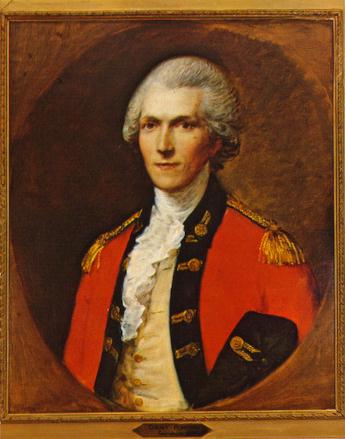I suppose that Benjamin Franklin is fairly widely known for his accomplishments in science and technology. He pioneered in the scientific study of electricity, recognizing it as a flow phenomenon and giving us some of the categories we still use to think about. He also pioneered in the recognition of ocean currents. He invented the Franklin stove, the lightning rod and the bifocal, as well as making a number of inventions of new institutions.
Benjamin Thompson is much less well known in the United States. Although he was born in what is now the United States, he chose to remain loyal to the British during the Revolutionary War and made his life in Europe after the war. He made an enormous scientific contribution in recognizing and demonstrating that heat was a measure of energy and not of a "caloric" fluid in matter. He also contributed to the understanding of gun powder, invented the Rumford stove and Rumford fireplace. (He became the Baron Rumford of the Holy Roman Empire for his service in Bavaria after the war.) He pioneered in the development of an affordable diet for the poor, and also is credited with institutional innovations.
Joseph Priestley immigrated to the United States after the Revolutionary War. His support for the American cause made him unpopular in England and perhaps made the new republic more attractive. Priestley discovered Oxygen, showed it was necessary to animal life, was important in the development of scientific understanding electricity and optics, and invented cabonated water and the process that makes our soda fountain drinks fizzy. He also made innovations in education.
All three were perhaps better known in their own time for other aspects of their careers than the scientific and technological.
Ely Whitney (inventor of the cotton gin, the milling machine, and the production of interchangeable parts which led to the American system of manufacture), John Fitch (an inventor of the steam boat). William Pollard (the spinning machine) and David Bushnell (the submarine and torpedo) all lived in the United States in the late 18th century.
Wikipedia gives the population of the colonies in 1775 as 2.4 million. Many of those people were slaves and most were scrambling to make a living and survive. I find it amazing that so many innovators in science and technology should have lived in such a provincial backwater (although Philadelphia may have been the second largest English speaking city in the world at the time after London). Perhaps the society that gave us those people as well as Jefferson, Adams and Madison was not so much of a backwater as I had believed.
Saturday, December 11, 2010
Subscribe to:
Post Comments (Atom)


No comments:
Post a Comment